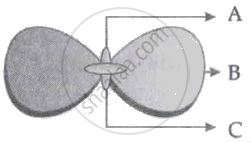Advertisements
Advertisements
प्रश्न
Answer the following question.
Why are the traits acquired during the life-time-of-an individual not inherited? Explain.
उत्तर
Traits acquired during the lifetime of an individual are not inherited. This is because an acquired trait involves the change in somatic cells which are non-reproductive cells. These cells do not produce gametes and thus, these traits cannot be inherited.
संबंधित प्रश्न
What is a gene?
Name the information source for making proteins in the cells.
With the help of two suitable examples, explain why certain experiences and traits earned by people during their lifetime are not passed on to their next generations. When can such traits be passed on?
Using height (tallness/dwarfness) of a plant as an example, show that genes control the characteristics or traits in an organism.
What will you get in the F1 and F2 generations in the following cross?
Pure tall pea plant × Pure dwarf pea plant
It it an example of monohybrid cross or dihybrid cross?
A cross between a tall plant (TT) and short plant (tt) resulted in progeny that were all tall plants because :
(a) tallness is the dominant trait
(b) shortness is the dominant trait
(c) tallness is the recessive trait
(d) height of plant is not governed by gene T or t
The farmers have been cultivating a food plant X for over two thousand years and have produced as many as five entirely different looking vegetables A, B, C, D and E from it.
(a) What could the plant X be?
(b) What are A, B, C, D and E?
(c) What is the process of evolution involved in this example known as?
In the following figure showing a germinating gram seed, name the parts labelled as A, B and C:

Why is Part 'B' considered to be important during germination?
Mendel crossed pea plants with two pairs of contrasting characters.
| RRYY | × |
rryy |
| Round, Yellow | Wrinkled, Green |
He observed 4 types of combinations in F2 generation. Which of the combinations were new? Write the conclusion drawn by this experiment.
